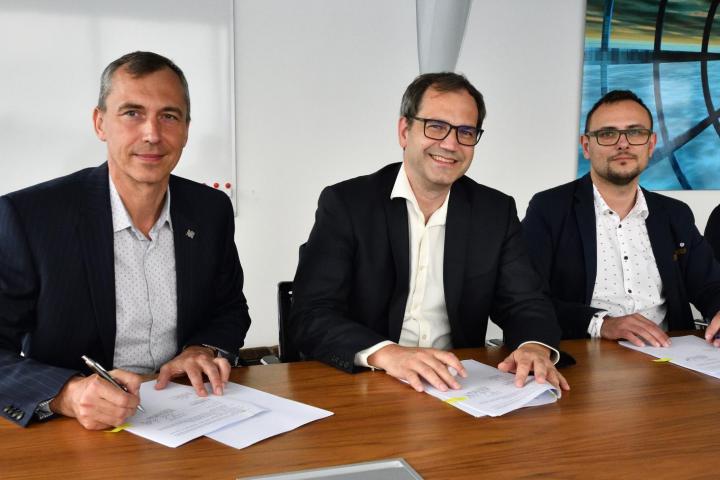
Batteries from electric cars, which have to be replaced after a few years of use due to their reduced capacity, are at best condemned to be recycled by crushing or heating in arc furnaces. The material obtained, which can be iron, manganese or zinc, is further used in the steel industry, for example. However, you cannot talk about recycling in the true sense of the word, because you can no longer make a battery from a used battery.
Thanks to retrofitting, i.e. the regeneration of batteries from electric cars, already used batteries get a second life and can serve well in places where their lower capacity is not a serious problem. The Czech Institute of Informatics, Robotics and Cybernetics (CIIRC) is preparing a design of a modular and flexible factory concept and a study of robotic battery dismantling for the Slovak ZTS VV plant.
“According to experts, by 2030, half of the cars in the EU will be electric, so we need to react now and prepare energy and economically efficient solutions for recycling the batteries from these cars,” says doc. Petr Kadera, head of the Intelligent Systems for Industry group at CIIRC CTU, which deals with the design of the future factory concept. “In our design, we emphasize the flexibility of the entire processing process. New types of batteries are added in geometric growth, and the robotic production line must be able to cope with most of them,” explains Kadera of the solution for the new factory.
“The project is an application of Industry 4.0 and is conceptually based on distributed production, where there is no fixed production plan. Depending on the different types of batteries and their condition, the production line responds dynamically to the current situation and the final product combines modules with different life states. Such a battery will find application as a stationary battery e.g. in hydropower plants, where it will serve as a storage of energy at its excess,” explains Professor Vladimír Mařík, scientific director of CIIRC CTU and at the same time one of the Czech pioneers of Industry 4.0.
“The disassembly of lithium-ion battery systems from automotive applications is a complex, and time- and financial-intensive process. Batteries have a complicated design and contain a number of flexible - unique components. Pre-contained chemicals in batteries are potentially dangerous during the disassembly process. All this aspects must be considered during the development of the disassembly line. So we have to think about the permanent development of batteries and thus about the new parameters of future models as well,” says the chairman of the board of ZTS VV and project leader Stanislav Králik.
Flexible distributed production, advanced automation and artificial intelligence are not only suitable tools for increasing the added value and efficiency of production, but also find significant application within the framework of sustainability and circular economy.
The project is included and supported by the IPCEI call, i.e. projects classified by the European Union as significant projects of common interest. A project of common interest means a project which is necessary for the implementation of priority corridors and areas of energy infrastructure, is intended to contribute to the development of networks in individual corridors and is included in the Union list of projects of common interest.
Photography: Roman Sejkot, CIIRC ČVUT. Contract signing between CTU Czech Institute of Informatics, Robotics and Cybernetics and ZTS - VÝSKUM A VÝVOJ, a.s.
from left– CTU CIIRC director Dr. Ondřej Velek, Stanislav Králik, chairman of the board of ZTS VV a Dr. Roman Kiš, board deputy chairman, ZTS VV.